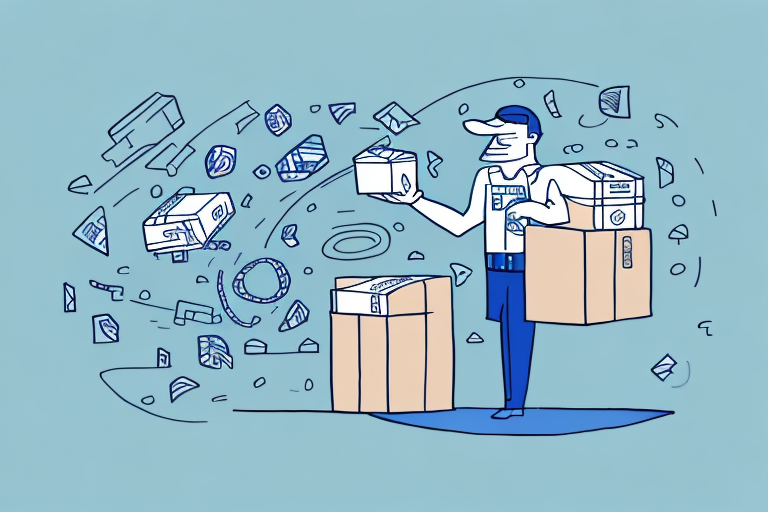Introduction to Becoming a 1099 Medical Courier Independent Contractor
The healthcare industry continuously relies on medical couriers to ensure the timely and safe transportation of essential medical supplies, specimens, and equipment. As a 1099 medical courier independent contractor, you can enjoy the flexibility of being your own boss while contributing to the efficiency of medical operations. This comprehensive guide covers everything you need to know about starting your journey as a medical courier independent contractor, including legal requirements, essential skills, and strategies for finding opportunities.
Understanding 1099 Independent Contractor Status
Operating as a 1099 independent contractor means you are self-employed and responsible for managing your own taxes, benefits, and business expenses. Unlike traditional employees, you are contracted to provide services for specific periods or projects. According to the U.S. Bureau of Labor Statistics, the demand for medical couriers is projected to grow by 12% from 2022 to 2032, reflecting the increasing need for reliable transportation of medical goods.
As a 1099 contractor, you have the autonomy to set your own rates, choose your clients, and schedule your work hours. However, this independence brings the responsibility of handling business operations, including securing insurance, managing finances, and ensuring compliance with industry regulations.
Role and Responsibilities of a Medical Courier
Medical couriers are essential to the healthcare system, tasked with the safe and timely transportation of medical supplies, specimens, and equipment between healthcare facilities, laboratories, and other medical institutions. Their key responsibilities include:
- Safe Handling and Transportation: Ensuring that medical items are securely packaged and transported to prevent damage or contamination.
- Timely Deliveries: Maintaining strict schedules to ensure that critical medical supplies and specimens reach their destinations promptly.
- Compliance with Regulations: Adhering to state and federal regulations, such as HIPAA, to protect patient information and ensure the safe handling of medical materials.
- Effective Communication: Coordinating with clients and healthcare professionals to schedule deliveries and address any issues that arise.
Adhering to guidelines set by the Occupational Safety and Health Administration (OSHA) ensures that medical couriers maintain high safety standards during transportation.
Benefits of Being a 1099 Medical Courier Independent Contractor
Choosing to work as a 1099 medical courier independent contractor offers several advantages:
- Flexibility: You have the freedom to set your own schedule, allowing for a better work-life balance and the ability to pursue other interests.
- Higher Earning Potential: Independent contractors can often negotiate higher rates compared to traditional employees, enabling you to increase your income based on the volume of work you take on.
- Autonomy: You have control over the types of deliveries you accept, allowing you to specialize in areas that interest you, such as transporting sensitive medical specimens or high-value equipment.
- Tax Advantages: As a self-employed individual, you can deduct business-related expenses from your taxable income, potentially reducing your overall tax burden.
However, it's important to consider challenges such as variable income and the need to manage your own business operations.
Steps to Becoming a Medical Courier Independent Contractor
- Obtain Necessary Licenses and Certifications: Depending on your location, you may need specific licenses such as a commercial driver’s license (CDL) or certifications in handling hazardous materials. The Federal Motor Carrier Safety Administration (FMCSA) provides guidelines on required certifications.
- Acquire Insurance: Securing liability insurance protects you against potential damages or losses during transportation. Consider policies that cover both your vehicle and the goods you transport.
- Invest in Reliable Equipment: Ensure you have a dependable vehicle equipped with necessary features for transporting medical items safely, such as refrigeration units for sensitive specimens.
- Create a Business Plan: Outline your services, target market, pricing strategy, and financial projections to guide your business operations. Resources like the Small Business Administration (SBA) offer templates and advice.
- Register Your Business: Choose a business structure (e.g., sole proprietorship, LLC) and register with the appropriate governmental authorities. The IRS provides information on different business structures.
- Find Clients: Network with healthcare facilities, laboratories, and medical supply companies to secure contracts and establish a steady stream of work.
Legal Requirements and Compliance for Medical Couriers
Medical couriers must adhere to various legal requirements to operate legally and ethically:
- HIPAA Compliance: The Health Insurance Portability and Accountability Act (HIPAA) mandates the protection of patient information. As a medical courier, you must ensure that all patient data is securely handled and transported.
- Hazardous Materials Transportation: If transporting hazardous materials, compliance with the Hazardous Materials Transportation Act (HMTA) is required, which includes proper training and certification.
- Insurance Requirements: Liability insurance is essential to cover potential damages or losses during transportation.
- Vehicle Regulations: Ensure your vehicle meets the necessary standards for transporting medical goods, including regular maintenance and inspections.
Failure to comply with these regulations can result in hefty fines and potential legal action. It's advisable to consult with a legal professional to ensure all compliance measures are met.
Finding Opportunities and Building Your Client Base
Securing consistent work as a medical courier independent contractor involves strategic efforts:
- Networking: Connect with healthcare professionals, join industry associations, and attend medical conferences to meet potential clients.
- Online Platforms: Utilize platforms such as Medical Courier Jobs or Upwork to find freelance opportunities.
- Direct Outreach: Reach out directly to hospitals, clinics, laboratories, and medical supply companies to offer your services.
- Marketing: Develop a professional website, leverage social media, and use word-of-mouth referrals to promote your services.
Building a strong reputation through reliable and professional service can lead to repeat business and referrals, expanding your client base over time.
Managing Finances as an Independent Contractor
Effective financial management is crucial for maintaining profitability as an independent contractor:
- Track Income and Expenses: Keep detailed records of all business-related income and expenses to accurately report taxes and identify deductible costs.
- Understand Tax Obligations: As a 1099 contractor, you are responsible for paying self-employment taxes. Consult with a tax professional to ensure compliance.
- Set Aside Savings: Allocate a portion of your earnings for taxes and unexpected expenses to maintain financial stability.
- Budgeting: Develop a budget to manage your operating costs, such as vehicle maintenance, insurance, and marketing expenses.
Using accounting software like QuickBooks can help streamline financial management and provide insights into your business's financial health.
Essential Skills for Success as a Medical Courier Independent Contractor
To excel in this role, certain skills are essential:
- Excellent Communication: Effective communication with clients and healthcare professionals ensures smooth operations and fosters strong relationships.
- Time Management: The ability to manage your schedule efficiently to meet delivery deadlines is crucial.
- Attention to Detail: Precise handling and documentation of medical items prevent errors and ensure compliance with regulations.
- Problem-Solving: Adaptability and the ability to resolve unexpected issues, such as traffic delays or equipment malfunctions, are vital.
- Organizational Skills: Keeping track of multiple deliveries, maintaining accurate records, and managing logistics requires strong organizational abilities.
Continual professional development, such as training in medical terminology and safety protocols, can further enhance your effectiveness as a medical courier.
Common Challenges Faced by Medical Couriers and How to Overcome Them
Working as a medical courier independent contractor can present several challenges, including:
- Irregular Income: The fluctuating nature of freelance work can lead to inconsistent earnings. Building a diverse client base can help mitigate this issue.
- Regulatory Compliance: Keeping up with changing regulations requires ongoing education and vigilance. Regularly reviewing guidelines from authoritative sources like HHS and OSHA is essential.
- Managing Business Operations: Balancing delivery tasks with administrative responsibilities can be demanding. Utilizing tools like CRM software and accounting platforms can streamline these processes.
- Physical Demands: The job can be physically taxing, involving lifting and moving heavy medical supplies. Maintaining good physical health and using proper lifting techniques can help prevent injuries.
Overcoming these challenges requires careful planning, continuous education, and a proactive approach to business management.
The Future of the Medical Courier Industry: Trends and Projections
The medical courier industry is poised for growth, driven by advancements in healthcare and technology. Key trends shaping the future include:
- Technological Integration: The use of electronic tracking systems and automated routing software is enhancing efficiency and reliability in deliveries.
- Increased Demand for Specialized Services: As medical treatments become more advanced, there is a growing need for couriers specialized in transporting high-value and sensitive medical equipment.
- Sustainability Initiatives: Eco-friendly transportation options, such as electric vehicles, are becoming more prevalent as organizations seek to reduce their carbon footprint.
- Expansion of Telemedicine: The rise of telemedicine services is increasing the demand for swift and secure delivery of medical supplies and specimens.
Staying abreast of these trends and adapting to new technologies will provide independent contractors with a competitive edge in the evolving market.
Conclusion: Is Becoming a 1099 Medical Courier Independent Contractor Right for You?
Becoming a 1099 medical courier independent contractor offers a unique blend of flexibility, autonomy, and the opportunity to play a crucial role in the healthcare system. While it requires dedication, organizational skills, and adherence to strict regulations, the benefits of higher earning potential and the satisfaction of contributing to patient care make it a compelling career choice. If you possess the necessary skills and are committed to providing reliable and secure transportation of medical goods, this career path could be both rewarding and fulfilling.






















